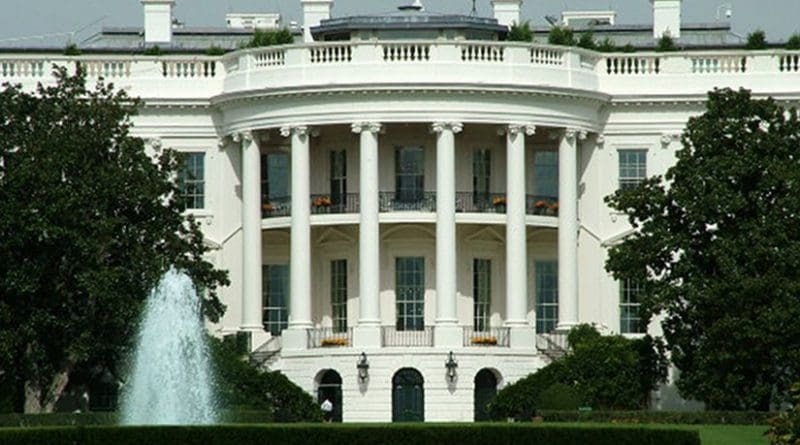White House’s Bad Means For A Good End – OpEd
As the political battle over the Iran nuclear deal rages on in United States, the supporters of the deal led by President Barack Obama and Secretary of State John Kerry have repeatedly followed a questionable script that can easily backfire in both the short and long run. We may call it “Iran nuclear alarmism” for purely heuristic purposes. In essence, this consists of a simple bifurcation of alternatives to “diplomacy or war” which has been repeated ad infinitum by U.S. officials since the Vienna “Joint Comprehensive Plan of Action” (JCPOA) on July 14th. Confronted by a sea of opposition at home and in Israel, the White House’s strategy has focused on a dualistic discourse that, in fact, raises the prospect of war with Iran while ostensibly defending the deal and praising the diplomatic path. Thus, in a keynote speech at American University, Obama went one step further and blamed the opponents of the deal for instigating a future war with Iran should they succeed in scuttling the agreement. Although this strategy might be for purely domestic consumption as a tactical ploy to gain support for the deal, particularly among the Democrats, whose votes are needed for a presidential override of a vote of no confidence in the deal come this September in U.S. Congress, nonetheless there are important, and highly dangerous, side-effects or rather unwanted consequences that in turn raise questions about the wisdom of this strategy, for the following reasons.
First, this strategy or political discourse stems from the underlying assumption that Iran has been marching toward nuclear bombs, which has been halted by the agreement. This has also been reflected in a recent full page advertisement in the New York Times by the National Iranian American Council (NIAC). Yet, this is nothing short of conceding a sizable ground to the critics of the deal, who are the master nuclear alarmists, such as the neo-con John Bolton and Israeli Prime Minister Benjamin Netanyahu. In other words, a serious error or judgment is reflected in this discourse that, in fact, perpetuates the myth of a “nuclearizing Iran.” Those who disseminate this myth one way or another cannot be possibly considered as “pro-Iran” no matter what their stated intentions.
Second, the bifurcated discourse of the ‘deal or war’ spearheaded by the White House is conjoined with the post-agreement rise in American military rhetoric against Iran, which has prompted a strong rebuke by Iran’s foreign minister Javad Zarif. Ironically, instead of bracketing the military threats against Iran, Obama, Kerry, and Ashton Carter the Defense Secretary, have actually utilized it, perhaps to give the impression of a robust Iran approach that has the “fall back” military option if the deal falls apart.
Third, the key problem with the White House’s salesmanship of the deal through nuclear alarmism is that it clashes with reality and the international norms and principles. Even in the worst case scenario of a nuclear weapons Iran, there is no automatic trigger for war, in light of the 1996 advisory opinion of the International Court of Justice on nuclear weapons that is highly nuanced and directly casts questions on the ‘war or diplomacy’ false assertions mentioned above. Following well-established principles in international law, the American claim that the alternative to the Iran nuclear deal would be a war is simply suspect and untenable. Had the nuclear talks failed, this would not have meant that there is a legal basis for attacking Iran, which is precisely what the defective White House discourse implies.
Fourth, the nuclear agreement faces a tough road ahead and for one reason or another might fall apart, although highly unlikely at this juncture, in which case the present American dualistic discourse lends itself to militarism against Iran, despite the absence of a legal foundation. As such, this discourse represents a threat to Iran’s national security that must be debunked and deconstructed, irrespective of its short-term dividend in mustering political support for the deal in U.S. Congress. From Iran’s vantage point, it is highly unsettling that the White House has opted for bad, questionable means for a purportedly good cause, but these wrong tactical choices have long-term strategic connotations that, from the prism of Iran’s national security, are intolerable.
Notwithstanding the above-said, Iran must vigorously denounce any coupling of the agreement with war and also debunk the flawed argument that the deal has stopped an “Iran bomb.” The JCPOA has simply provided further assurances about the inherent peacefulness of Iran’s nuclear program, which is a far cry from the dubious assumption of the Iran nuclear alarmists, who as stated above include so many official and non-official backers of the deal in U.S.
This article appeared at Iran Review

